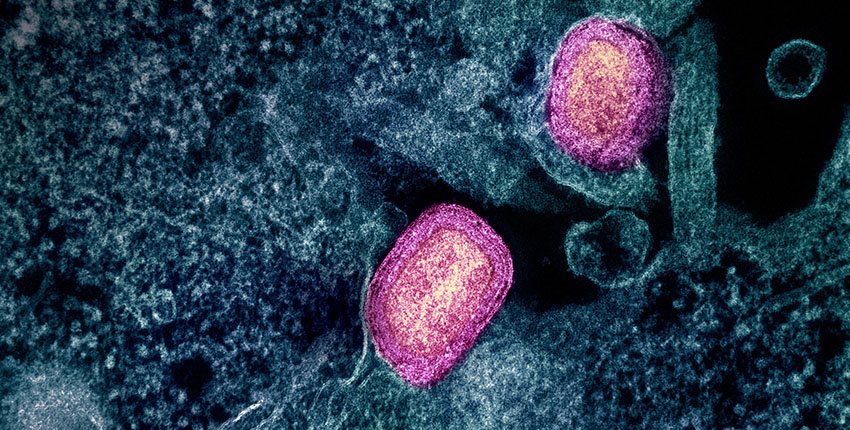
On 14 Aug 2024, the World Health Organization (WHO) decalred the latest mpox outbreak in Africa a public health emergency of international concern. While the virus is not new, its behavior warrants vigilance and raises critical questions about its infectivity, transmissibility, and the optimal preventive measures to halt the spread of the pathogen even further.
The epicenter of the outbreak is in the Democratic Republic of the Congo (DRC) and other African countries, and cases have been reported in other countries outside Africa. This has raised international concern and countries are on high alert.
For the latest situation report go to WHO website: https://www.who.int/publications/m/item/multi-country-outbreak-of-mpox–external-situation-report-35–12-august-2024
Comments are closed.







Your information will never be shared with any third party
Click to Chat with Us
Countries have been on heightened alert in the wake of the WHO announcement. Southeast Asian countries, including Singapore, Malaysia, and other countries have stepped up surveillance measures and prepared their healthcare experts and teams to contain the mpox.
LIST OF AFFECTED COUNTRIES
As of 16 Aug 2024, 1200H, countries that have reported mpox Clade I cases are:
Burundi
Cameroon
Central African Republic
Democratic Republic of the Congo
Gabon
Kenya
Republic of Congo
Rwanda
Uganda
Sweden*
*One exported case was detected in Sweden. The case had prior travel history to an affected African country and was infected there.
SIGNS & SYMPTOPMS OF MPOX
Clade I infections have historically been characterized by more severe disease than Clade II infections. Based on currently available data, individuals who are at higher risk of severe illness include young children, pregnant women, or immunocompromised individuals.
Symptoms for both clades are indistinguishable and may include:
Skin rash often starts from the face before becoming generalized including involvement of palms and soles. However, presentation in the global outbreak of Clade II involves only a few or single localized lesions, especially in the genital and groin areas, which do not spread further.
* Fever
* Headache
* Backache
* Swollen lymph nodes
* Muscle ache
* General feeling of exhaustion or profound weakness
HOW IS MPOX TRANSMITTED?
Mpox can spread through physical contact with infected individuals, skin lesions and body fluids, contaminated materials and environments, or exposure to respiratory secretions. The virus can also spread from animals to humans, e.g. through bite or scratch from an infected animal, bush meat preparation, or direct contact with the blood, body fluids, or skin or mucosal lesions of infected animals.
In the global outbreak of MPXV Clade IIb, the main mode of transmission is via close physical or prolonged contact, such as face-to-face and skin-to-skin contact including sexual contact. Many cases have been identified in individuals who reported intimate contact (including sexual contact) with infected people. Cases have also been reported where infection was attributed to household transmission. Regardless of sexual orientation, persons engaging in high-risk sexual behaviors, such as having multiple or casual sexual partners are most at risk of infection in the context of the current outbreak.
Food (other than bushmeat) has never been identified as being associated with human cases of mpox. Currently, there is also no evidence that food or food packaging is a likely source or route of transmission of the virus. As such, the risk of mpox transmission through food is low.
PRECAUTIONARY MEASURES:
People are strongly advised to maintain vigilance and take the following precautions:
1. Observe and practise good personal hygiene at all times.
2. Wash your hands regularly with soap, especially before handling food or eating, after going to the toilet, or when hands are dirty from coughing or sneezing. If water is not available, use an alcohol-based hand sanitizer that contains at least 60% alcohol.
3. Avoid contact with unwell persons (e.g., those with rash or other lesions).
4. Avoid sharing common items that may be contaminated with bodily fluids.
5. Practice safe sex, including avoiding high-risk sexual activities such as having multiple sex partners or engaging in casual sex.
6. When traveling, avoid feeding or touching animals, especially stray or wild animals, and the consumption of bush meat.
7. Travellers from countries affected by mpox should monitor for symptoms for 21 days upon their return from these countries.
8. Seek medical attention immediately if you become unwell or develop symptoms such as sudden onset of high fever, swollen lymph nodes and rash, and inform the doctor of your travel or exposure history